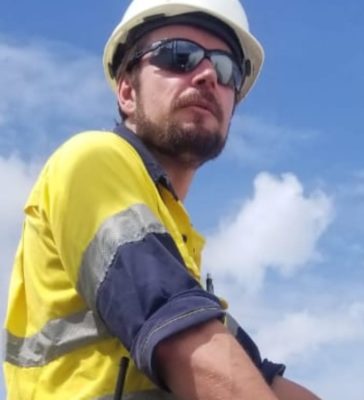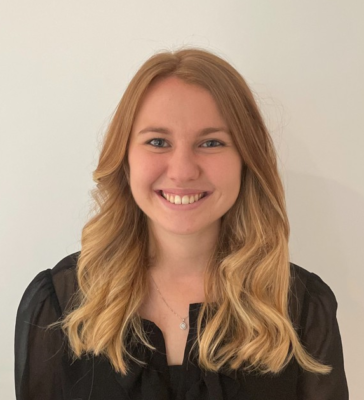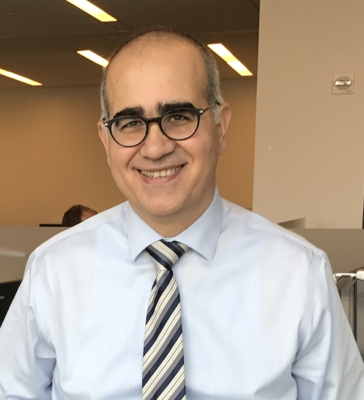
Peter Saxby
Current Employer/Organisation Name
Lagata UK
What have you been doing since leaving Exeter, and what are you doing now?
Initially, upon graduating from Camborne School of Mines (CSM) I spent six months working as a site engineer at the Hinkley Point C construction project with Kier. This involved a great mix of office and site work and allowed me to put into practice many of the skills I had developed during my time at CSM. Towards the end of 2016 I was contacted by Troy Resources (the company I had carried out my summer work placement with) and asked to apply for a Mining Engineer role with them. This took me out to Guyana to work on a 6 week on/3 week off rotation conducting operational design and planning in an open pit gold mine. Here I really got to start applying the knowledge and skills developed at CSM to improve the operation. I identified areas for improvement such as drill and blast quality control, mining efficiencies and environmental damage mitigation which provided a lasting impact on the project. After spending around 18 months here, I contacted First Bauxite (Guyuana Industrial Minerals Inc.),a very early-life bauxite mining operation in Guyana, to request a visit to their mine site. During the visit they asked if I would be interested in joining them as Senior Mining Engineer, an offer I took up. Here I took on far greater responsibility, acting as Mine Manager and sole Mining Engineer for the operation. I was able to apply my growing knowledge and experience to make design and planning changes to the operation to not only improve the project feasibility and economics, but also to reduce its impact on the Guyanese rainforest and local communities. Taking leadership on initiatives such as designing and initiating site remediation, waste dump redesign to reduce project footprint, and process water recycling system design, were examples of my input to this ongoing operation. One of the impacts of the Covid-19 virus was to halt international travel, which meant for me a need to find UK based work. I spent 10 months working for Wardell Armstrong International at their Truro office in Cornwall as Senior and then Principle Mining Engineer on projects in Europe and the Middle-East. This allowed me to take a step back from the daily buzz of site based engineering and take a more technical/strategic viewpoint on mining operations. Improving my software skills and applying an increasing understanding of project financials to projects at a distance provided an excellent opportunity to view the issues faced by mining companies. While I had enjoyed the consultancy experience, I was pleased to be contacted by a newly operational underground copper/lead/zinc mine owned by Vast Resources in Romania. The opportunity to gain underground mining experience allowed me to broaden my skills and rapidly apply knowledge gained during my degree to operational improvements. In the six months I worked at the operation I was able to review many basic mining practices in use and make suggestions for improvements. It is also worth noting that the opportunity to live in the mountains in Transylvania was fantastic, with a close encounter with a European brown bear a particularly memorable event! My current role is as Group Mining Engineer with a UK based company which has several mining operations in Africa. I work out of its London office to provide technical oversight and strategic planning, along with identifying and running continuous improvement projects. This has so far provided me with a good number of opportunities to apply not only the range of mining experience I have gained to date, but also return to the technical knowledge gained at CSM. As always, the importance of applying responsible mining practices that is so strongly supported through an education at CSM has been a fundamental value in my work.
Why did you choose this career? And what do you enjoy most about your work?
The mining industry stood out to me as providing the opportunity for an international career and lifestyle. Having now worked on projects in South America, Europe, The Middle-East and Europe I have been able to experience a huge range of cultures and see some amazing little corners of the planet. The beauty of the mining industry is its network of people, its fundamental importance to everything else that we as a species do and also its industry culture of work-hard play-hard. One of the things I enjoy most about my work is being able to provide a professional and ethical foundation to an industry which has unfortunately developed a bad reputation. Leadership in doing things the ‘right’ way is the only way we will improve what is a necessary but much ignored industry.
Please tell us if you were a member of any societies, groups or sports clubs?
During my time at Camborne School of Mines I was a member of the CSMSA, a network in which I am still active and hope to further support through the alumni network CSMA.
What did you enjoy most about your programme and what was the biggest highlight?
The wide range of topics covered by the BEng Mining Engineering made the course highly enjoyable. There was a general feeling that the course was training you to approach real-life problems and I felt that everyone had a good sense of where the course was heading. Probably the biggest highlight was being able to bring all of the knowledge gained throughout the course together in the Feasibility Study. Tutors such as Dr Andrew Wetherelt and Dr Lewis Meyer really brought the course to life and with their wealth of industry experience their material always felt highly applied.
What did you enjoy most about studying here?
The CSM network and family. The course very much felt like a pathway towards a successful career.
Why did you choose to study at Exeter?
Camborne School of Mines’ global reputation and network.
What skills and experiences have been most useful for your career?
I think I have applied every single aspect of the BEng Mining Engineering in my career. From utilising fundamental fluid mechanics and engineering to justify pit dewatering improvements, through discussing mineral economics in senior management meetings, to showing drilling crews how to install a rockbolt (as learned at the Holman’s Test Mine). Overall, the confidence in approaching problems as something that merely requires the right solution to be found has been invaluable. This fundamental attitude developed in my studies at CSM has been applied in a huge range of problems including pit slope redesign in heavy rainfall, fuel theft in developing countries and operational budget development.
What advice would you give to a current student who wishes to pursue your career?
Work hard to develop technical skills and knowledge, but also strive to gain an understanding of the practical issues faced in implementing your designs. Furthermore, remember that the mining industry is a tight-knit community in which you will be remembered; work hard and treat others with respect.
What are your plans for the future?
I plan to continue to develop my career towards increasing levels of seniority and responsibility in the mining and resources industry. Short-term I am completing an MBA in International Mineral Resources Management and looking to grow my exposure to corporate level problems. Longer term I would like to steadily move towards board level leadership in mining companies.

